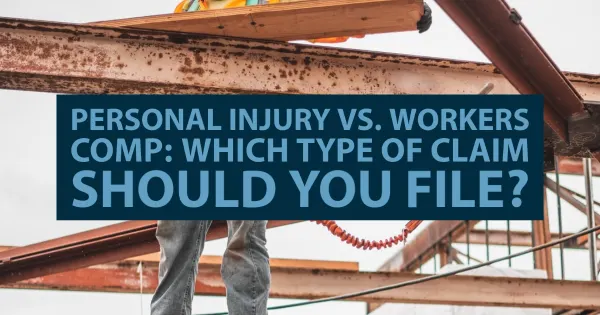Dashcams have recently become indispensable tools for drivers. It's like...

We all want to believe that our workplaces are safe and that we’ll never get hurt while we’re on the job. Unfortunately, these beliefs aren’t always reflected in reality. If you’ve become injured while performing professional duties, your main concern should be to seek proper medical attention. After that’s taken care of, you may need to start thinking about how you can protect your rights and how to ensure you won’t take on an undue financial burden as a result of your workplace injury.
Your first thought may be to contact a workers comp attorney Omaha employees trust. But in some situations, it may be better to work with a law firm that handles personal injury claims. What exactly is the difference between these two types of suits? And how do you determine which one is the right one for your situation? Let’s discuss the answers in today’s post.
Many people assume that if they’re hurt at work, the only option is to file a worker’s comp claim. While worker’s compensation might be the best way to go, it’s often not the only way. One thing to note is that it isn’t necessarily the type of injury that determines which claim you should file. Although slips and falls are the number one cause of worker’s compensation claims, there may be certain instances wherein it’s appropriate to file a personal injury claim when a slip-and-fall incident has taken place. There are a number of common workplace injuries that could be handled by either a personal injury claim or a worker’s comp claim. There are a number of other factors that are used to determine which legal route to take.
The biggest difference between filing a worker’s comp claim and a personal injury claim is that worker’s compensation claims do not need to prove fault. If you’re partially to blame for why you became injured at work — or fault is simply too difficult to prove — filing a worker’s compensation claim can still allow you to receive benefits. These benefits may include damages for medical expenses, wage loss, rehabilitation, and/or permanent impairment. However, it’s pertinent to note that not all workers are eligible for this type of claim and that benefits may be limited by specific statutes.
With personal injury cases, on the other hand, your law firm of choice will have a responsibility to prove fault. This means that there needs to be evidence to show that another party’s negligence directly caused your injuries at work. This is typically a more difficult task, but there are a number of instances where your law firm may recommend this option. For example, if your employer’s intentional behavior was likely to cause injury or death or if your employer refuses to carry worker’s compensation insurance, you may be advised to file a personal injury case. Keep in mind that damages from personal injury cases can include not only medical expenses and lost wages but also diminished earning capacity and even pain and suffering.
Ultimately, the type of claim filed depends on the specific circumstances of your case and the recommendations made by your law firm. If you’ve been injured at work and are trying to figure out the next steps, it’s essential that you consult with an attorney to devise a plan that puts your interests first. For more information on how we can help, please contact our firm today.